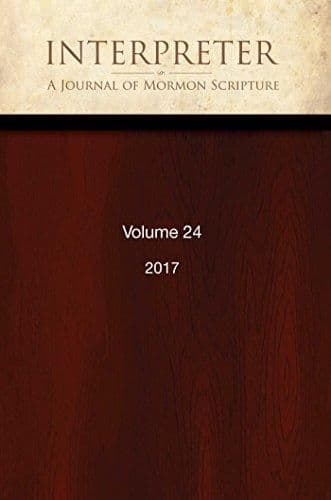Journal
Textual Criticism and the Book of Moses: A Response to Colby Townsend’s “Returning to the Sources,” Part 1 of 2

Title
Textual Criticism and the Book of Moses: A Response to Colby Townsend’s “Returning to the Sources,” Part 1 of 2
Publication Type
Journal Article
Year of Publication
2020
Authors
Bradshaw, Jeffrey M. (Primary), and Dahle, Ryan (Primary)
Journal
Interpreter: A Journal of Latter-day Saint Faith and Scholarship
Pagination
99-162
Volume
40
Abstract
Textual criticism tries by a variety of methods to understand the “original” or “best” wording of a document that may exist in multiple, conflicting versions or where the manuscripts are confusing or difficult to read. The present article, Part 1 of a two-part series by Jeffrey M. Bradshaw and Ryan Dahle, commends Colby Townsend’s efforts to raise awareness of the importance of textual criticism, while differing on some interpretations. Among the differences discussed is the question of whether it is better to read Moses 7:28 as it was dictated in Old Testament 1 version of the Joseph Smith Translation manuscript (OT1) that “God wept,” or rather to read it as it was later revised in the Old Testament 2 version (OT2) that “Enoch wept.” Far from being an obscure technical detail, the juxtaposition of the two versions of this verse raises general questions as to whether readings based on the latest revisions of Latter-day Saint scripture manuscripts should always take priority over the original dictations. A dialogue with Colby Townsend and Charles Harrell on rich issues of theological and historical relevance demonstrates the potential impact of the different answers to such questions by different scholars. In a separate discussion that highlights the potential significance of handwriting analysis to textual criticism, Bradshaw and Dahle respond to Townsend’s arguments that the spelling difference between the names Mahujah and Mahijah in the Book of Moses may be due to a transcription error.
Subject Keywords
Bibliographic Citation
Terms of use
Items in the BMC Archive are made publicly available for non-commercial, private use. Inclusion within the BMC Archive does not imply endorsement. Items do not represent the official views of The Church of Jesus Christ of Latter-day Saints or of Book of Mormon Central.